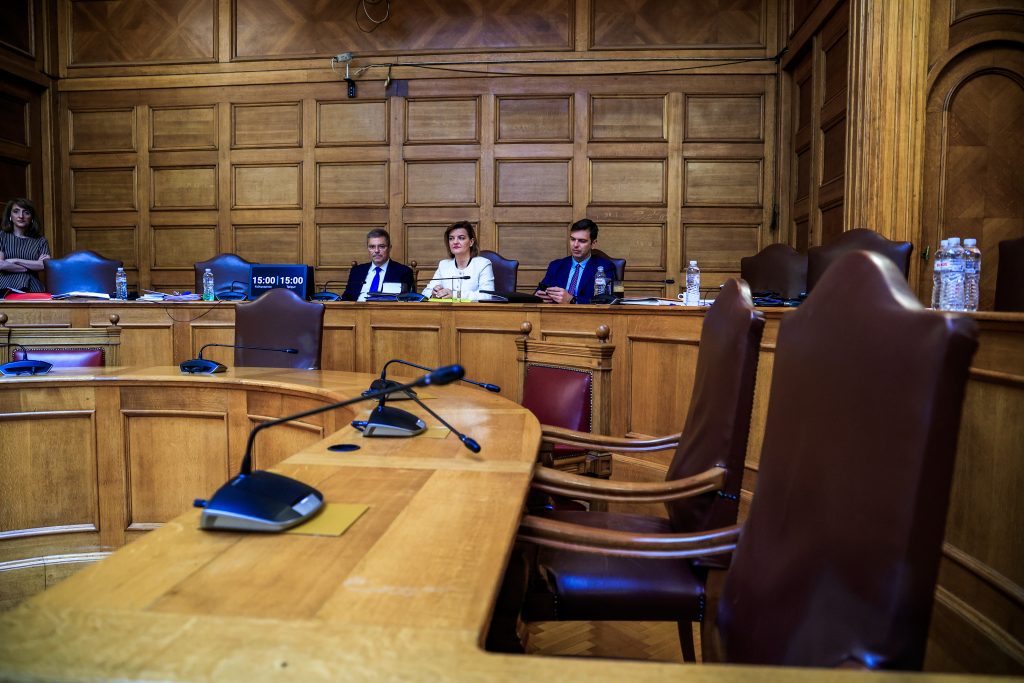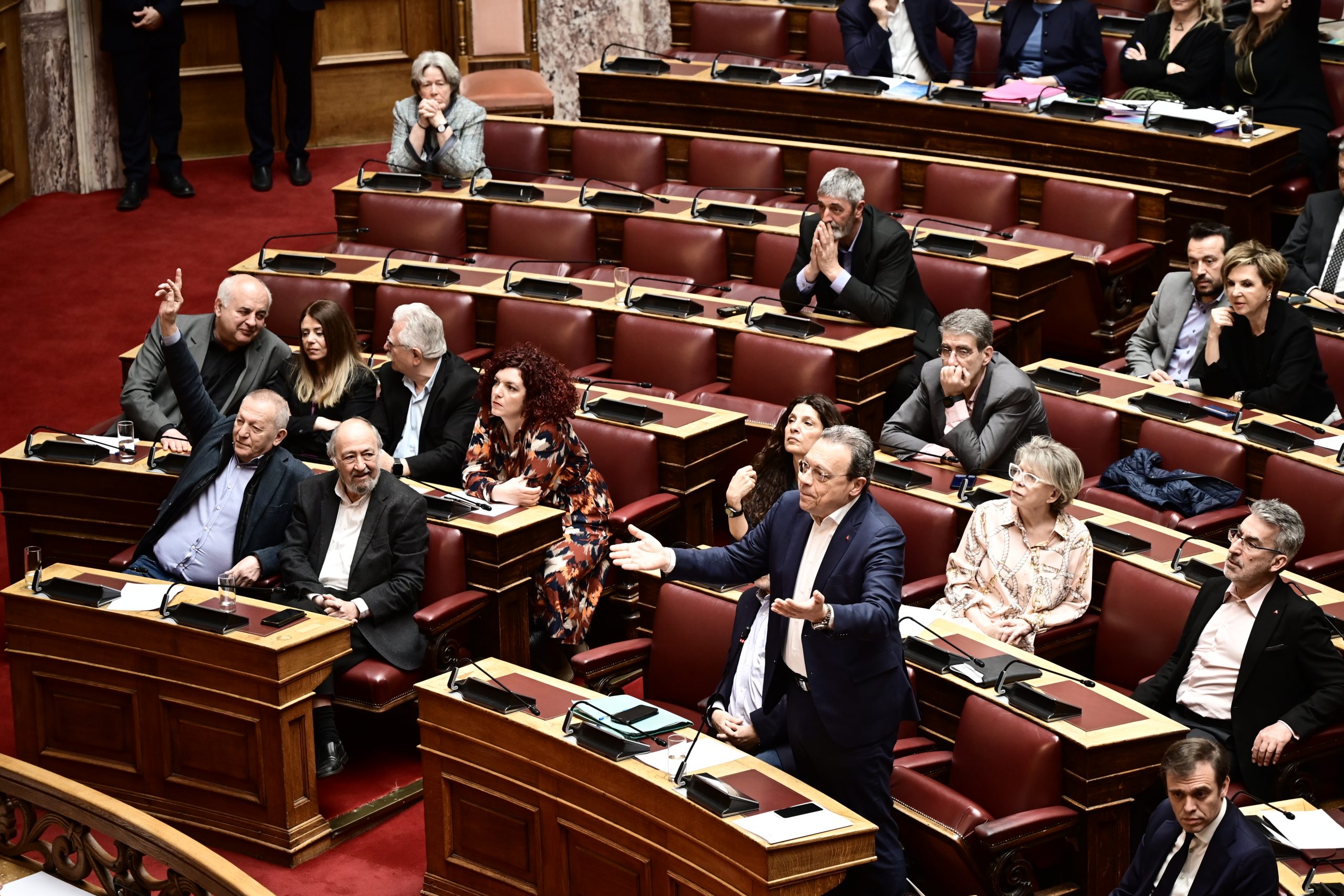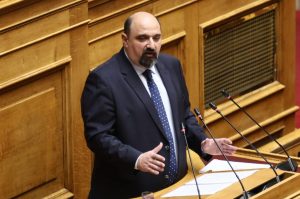A tense and politically charged debate is unfolding today in the Greek Parliament as lawmakers consider the findings of a pre-investigation committee concerning former Deputy Minister Christos Triantopoulos.
The Plenary Session will conclude with a secret ballot vote this evening on whether to refer him to the Judicial Council over allegations of criminal misconduct related to the deadly Tempi train crash.
Triantopoulos faces accusations of breach of duty during the three-day period (March 3–6, 2023) following the Tempi train collision, which claimed 57 lives.
A final decision to refer the minister requires at least 151 votes in favor. Triantopoulos, who has denied all allegations, will not participate in the vote but may address Parliament during the session.
Political Divide and Procedural Controversy
The debate began amid high tensions, with opposition parties denouncing the legitimacy of the process.
SYRIZA’s parliamentary leader, Socrates Famellos, called for the session to be suspended, branding the procedure “illegal” and “unconstitutional.” Famellos denounced “a new coup d’état” and asked that the MPs vote on his request to interrupt the proceedings and refer the case back to the pre-investigation committee, a request which was not accepted. SYRIZA then ostentatiously withdrew from the proceedings.
Plefsis Eleftherias, or Course for Freedom, party leader Zoe Konstantopoulou launched a scathing attack on governing party New Democracy, accusing the party of bypassing due process and attempting to protect not only Triantopoulos but other government officials, including former Transport Minister Costas Karamanlis and Prime Minister Kyriakos Mitsotakis. “This is an attempt to erase criminal responsibilities in the Tempi tragedy,” Konstantopoulou asserted.
PASOK backed the referral of Triantopoulos to the Judicial Council, with its Central Committee voting unanimously in favor the day prior. PASOK MP Dimitris Mantzos said on the parliament floor on Friday that, “we as a force of responsibility will remain committed to the end to the need for both Mr. Triantopoulos and the others responsible for the Tempi train accident to be held accountable.” However the party’s rapporteur Milena Apostolaki, alleged that, “The Prime Minister chose to circumvent the Constitution, bypassing the preliminary examination stage, with the sole criterion of limiting his personal exposure, his political cost, and his further questioning.”
Opposition parties had also raised concerns during the first step of these procedures at the end of March, with SYRIZA and PASOK questioning the procedural integrity of the investigation, alleging that not enough witnesses had been called.
The communist party KKE, MP Thanasis Pafilis reiterated these concerns on Friday saying his party, “still denounces this wretched method on the part of the government,” stating that “that is why we withdrew from the preliminary investigation and did not submit a report. We had submitted a proposal to call witnesses.” KKE withdrew from the debate in protest.
The Hellenic Solution party also supports referral and also walked out of the proceedings.
New Democracy maintains that while it disagrees with the accusations against Triantopoulos, it supports a judicial process to remove any doubt. On the parliament floor on Friday New Democracy PM Giorgos Floridis launched an attack on the opposition parties and accused them of attempting to manipulate the truth to benefit their performance in the polls.
Judicial Path Forward
This process comes due to the quirks of Greece’s ministerial immunity law, which dictates that government officials can only face criminal proceedings for crimes committed in the purview of their office, if the parliament votes on referring them to criminal proceedings.
Should the parliamentary vote today result in a referral, the case will proceed to a five-member Judicial Council, composed of judges from Greece’s highest courts. If this council deems there is sufficient cause, Triantopoulos could face trial before the Special Court on Ministerial Responsibility—a rare and serious step under Greek constitutional law.
The outcome of tonight’s secret vote is expected after 10 p.m.






